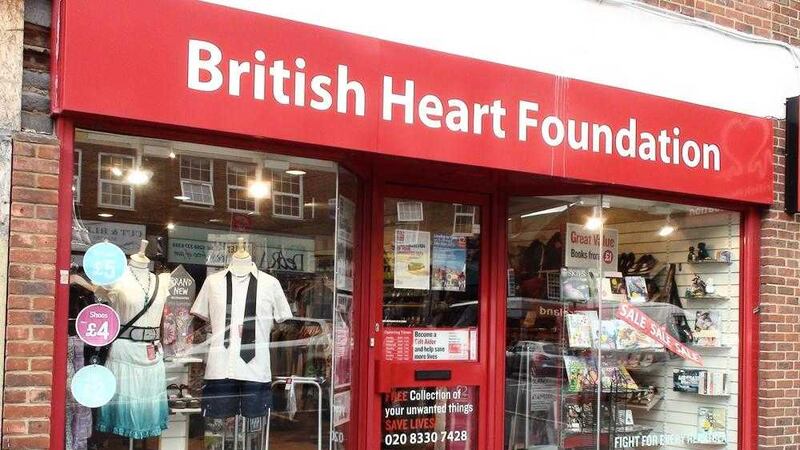WITH over 20 years trading experience locally, British Heart Foundation Northern Ireland (BHF NI) knows only too well the serious issues affecting our shops and high streets across the country.
BHF NI has eight shops in towns and cities across the province so we completely understand the difficulties facing local traders - everything from raising enough income to cover costs to generating enough sales to keep the doors open.
The economic downturn continues to be equally difficult for families, local businesses and charities alike. We understand that the business community is looking for ways to reduce their rates bill as part of a range of measures to stimulate business growth.
But charity shops are not the reason for high street decline and asking them to pay rates is effectively taxing public donations and in the end, taxing public benefit.
Charity shops are unique. In order to fully do justice to the generosity of local people it is vitally important that our shops run as efficiently as they can so that every donation benefits the public.
For example, when someone buys a coat from a BHF NI shop, the funds raised from the sale help the support our researchers at Queen’s University to don their white coats and help achieve amazing breakthroughs such as finding a cure for heart failure or trialling the first potential treatment for vascular dementia.
And we’re not alone, as charity shops across Northern Ireland raise money every day to fund their vital life-saving and life-changing work.
Furthermore, a healthy charity sector is a good investment for both the individual and the local economy. The money that is kindly donated is used in a number of ways including sizable reinvestment in local universities, for job creation and bolsters services and treatments for the public.
For every £1 that BHF NI spends on research and development in local universities an additional 20p is generated in the private sector. In this way charity shops play their part in sustaining economic growth while delivering considerable public benefit.
BHF NI joined forces with 15 other local charities and the Charity Retail Association and launched the More Than a Shop campaign to help inform the debate. The campaign highlighted that if rate charges were incurred by charity shops many local charities have predicted the closure in some if not all of their stores.
In the very small portion of charity shop sales that do compete with commercial interests, they already pay a comparable percentage of annual rates on non-donated VAT-able goods. Many charity shop managers are active participants in their town centre business associations and work with other local businesses to improve their localities.
Volunteering in charity shops can help equip young people and the long term unemployed with the skills they need to find full time work in the retail sector. Volunteering can also help to combat social isolation and loneliness amongst older volunteers.
In 2015, the charity retail sector were able to sell or recycle over 90 per cent of donated clothing, over 90 per cent of donated books and 85 per cent of donated electrical goods. This diverts waste away from landfill, improves recycling and re-use rates and saves the public purse significant disposal costs.
Rather than allowing the rates debate to polarise charity shops and the business community we need to use this opportunity to work better together, foster and grow relationships and nourish and improve our high streets. Without charity shops it won’t just spell decline for our high street it will mean millions of pounds is lost from tackling poverty, funding world-leading medical research and running local hospices.
:: Jayne Murray is head of British Heart Foundation Northern Ireland (BHF NI)







